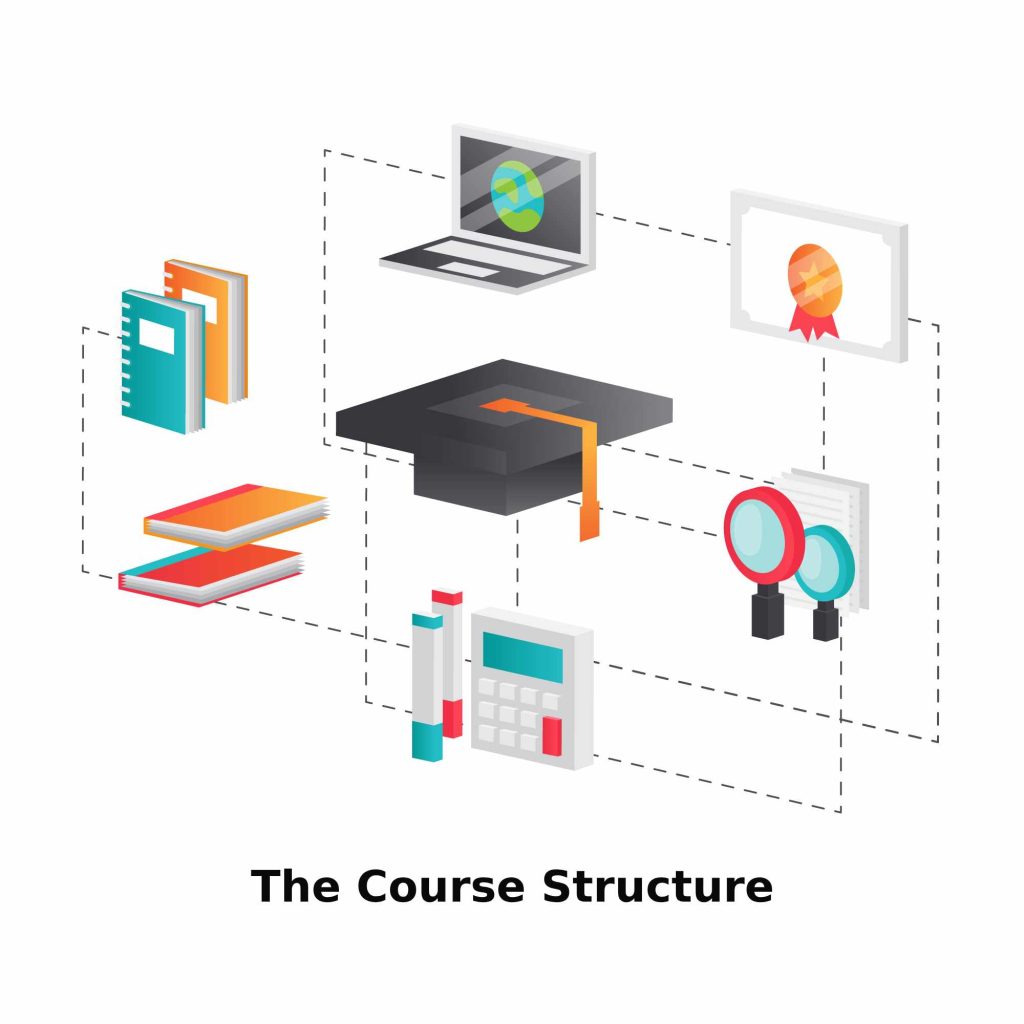Study in Denmark
Studying Danish in Europe, Denmark offers a unique and immersive learning experience that extends beyond the classroom. Language centers like Lærdansk and various Sprogcenter facilities provide structured courses tailored for beginners to advanced learners, integrating language skills with cultural insights.
Why Study in Denmark ?
It, therefore, goes without saying that it is very beneficial to students from other countries to study in Denmark because of the accrued benefits Denmark has for its students. Some of the valid reasons why one should opt to study in Denmark are as follows: “
High-class Education: Denmark boasts of a high-class education system, with its academic standards amongst the best in the world. Creative learning styles also form part of what describes Danish higher education. Most universities and institutions offer a wide variety of programs taught in English, often with a focus on practical experience and interactive learning styles.
Cultural Immersion: The opportunity for cultural immersion in Denmark offers a wide field of experiences, from its rich history and traditions to modern lifestyle and design. You will understand the country and people in depth.
English Proficiency: The ability to speak and understand English by most of Denmark’s population makes adaptation and communication easier for international students even in instances when one does not necessarily have fluent skills in the local Danish language.
Safety and Inclusivity: Denmark is always in the top rankings when it comes to safety, quality of life, and general well-being. It has gained a reputation as a country where the atmosphere is friendly and inclusive, which automatically makes living and studying there comfortable.
Innovative and Research-Oriented: Danish universities stand among the world leaders in research and innovation across an array of disciplines. One of the frequent possibilities students face is the taking part in quite advanced projects and cooperating with leading professionals.
Strong Emphasis on Sustainability: Being one of the world leaders in matters regarding sustainability and green technology, studying in Denmark will prove a great avenue for you to get involved with and learn from various initiatives that are engaged in environmental conservation and sustainable development.
Cultural Experiences: Far from academics, there is a great deal of cultural exposure in Denmark, including into museums, theaters, festivals, and food. You will have ample time to explore and enjoy all manner of Danish culture.
Scenic landscapes-everything from picturesque cities to charming open countryside and coasts-form a beautiful backdrop to both your studies and leisure. Public services are excellent, ensuring high standards of healthcare and efficient public transport, which will make for a comfortable and supportive environment in which to study. International Community: Students from all over the world come to Denmark, making for an exciting, international atmosphere in which you can establish global networks and friendships.
By choosing to study in Denmark, one is bound not only to have quality education but also a well-rounded experience within a lovely, progressive country.
Who can study Language programs in Europe, Denmark?
Eligibility for Danish language programs is quite broad, encompassing a wide range of foreign residents, students, workers, and refugees. Each category has specific documentation and residency requirements, so it is important for applicants to check with the specific language center or institution for detailed eligibility criteria and enrollment procedures.
- Foreign Residents
Newcomers: Foreigners who have recently moved to Denmark, including immigrants, refugees, and family reunification cases, are usually eligible for Danish language courses.
EU/EEA Citizens: Citizens of the European Union (EU) or European Economic Area (EEA) living in Denmark can enroll in these courses.
Non-EU/EEA Citizens: Non-EU/EEA citizens with a valid residence permit in Denmark can also access language programs.
- International Students
Exchange Students: Students participating in exchange programs at Danish universities may be eligible for Danish language courses offered by their institutions.
Degree-Seeking Students: International students enrolled in full degree programs at Danish universities are often provided with opportunities to learn Danish as part of their studies.
- Foreign Workers
Employed Foreigners: Foreign employees working in Denmark under various work permits or agreements are eligible for Danish language courses.
Accompanying Family Members: Spouses and other family members of foreign workers often have access to language programs to aid their integration.

- Au Pairs
Au Pairs: Foreign au pairs working in Denmark typically have access to Danish language courses to help them integrate into Danish society and communicate effectively with their host families.
- Permanent Residents and Naturalized Citizens
Permanent Residents: Individuals with permanent residency status in Denmark can continue or start Danish language courses.
Naturalized Citizens: New Danish citizens often take language courses to improve their proficiency and integration.
- Tourists and Short-Term Visitors
Tourists: While tourists and short-term visitors are not typically eligible for government-funded language programs, they can enroll in private language courses if they wish to learn Danish during their stay.

Requirements for language courses in Europe, Denmark
The requirements for language courses in Denmark are designed to accommodate a wide range of individuals, including new residents, international students, foreign workers, refugees, and au pairs. Each category has specific criteria related to residency, enrollment status, and documentation. It is important for prospective students to check with the specific language course provider to ensure they meet all the necessary requirements and to understand the registration process.
- Age Requirements: Some programs may have minimum age requirements, often targeting adults, though there are also programs for children and teenagers.
- Initial Assessments: Many language centers require an initial assessment or placement test to determine the appropriate course level for the student.
- Documentation: Proof of residency, employment, or enrollment in an educational institution may be required to register for courses.
- Proof of Residency: Required for many programs, such as a CPR number and proof of address.
- Initial Assessment: Many language programs require an initial language assessment to place students in the appropriate level.
- Registration Process: Completion of application forms and payment of any applicable fees (especially for private courses).
The Course Structure
Danish language programs in Denmark are well-structured to accommodate different levels of language proficiency, from complete beginners to advanced learners. They are designed to help learners progressively build their skills in listening, speaking, reading, and writing, with clear benchmarks and goals at each stage of learning.
- Module System
Public Language Centers: Often use a modular system, where each module corresponds to a CEFR level or a part of it.
Assessment: Progress is typically assessed through tests or exams at the end of each module.
- Intensive Courses
University Programs: These may offer intensive Danish courses, covering multiple levels within a shorter period.
Combination Courses: Some programs combine language learning with cultural orientation and integration activities.
- Private Language Schools
Tailored Programs: These may offer more flexible and tailored programs, including one-on-one tutoring, specialized courses for specific purposes (business Danish, academic Danish), and online options.

Danish language programs- All Levels
Danish language programs in Europe, Denmark are typically structured to align with the Common European Framework of Reference for Languages (CEFR). The CEFR is a standardized guideline used to describe language proficiency across Europe and is divided into six levels: A1, A2, B1, B2, C1, and C2. Danish language courses are often organized into modules or steps that correspond to these levels. Here’s a detailed overview of the levels in Danish language programs:
1. Beginner Levels
A1: Beginner
- Skills Developed: Basic phrases, simple interaction, understanding and using familiar everyday expressions.
- Communication Ability: Can introduce themselves and others, ask and answer questions about personal details.
- Typical Content: Greetings, numbers, basic grammar, everyday vocabulary.
A2: Elementary
- Skills Developed: Understanding frequently used expressions, simple conversations about routine tasks.
- Communication Ability: Can communicate in simple and routine tasks requiring a direct exchange of information.
- Typical Content: Shopping, local geography, employment, basic sentence structures.
2. Intermediate Levels
B1: Intermediate
- Skills Developed: Understanding the main points of clear standard input on familiar matters, producing simple connected text on topics of personal interest.
- Communication Ability: Can deal with most situations likely to arise while traveling in an area where the language is spoken.
- Typical Content: Descriptions of experiences, events, dreams, hopes, and ambitions; opinions and plans.
B2: Upper-Intermediate
- Skills Developed: Understanding the main ideas of complex texts on both concrete and abstract topics, producing clear detailed text on a wide range of subjects.
- Communication Ability: Can interact with a degree of fluency and spontaneity that makes regular interaction with native speakers quite possible.
- Typical Content: Technical discussions in their field of specialization, detailed narratives, and explanations.
3. Advanced Levels
C1: Advanced
- Skills Developed: Understanding a wide range of demanding, longer texts, and recognizing implicit meaning, expressing ideas fluently and spontaneously without much obvious searching for expressions.
- Communication Ability: Can use language flexibly and effectively for social, academic, and professional purposes.
- Typical Content: Complex texts and discourse, nuanced argumentation, advanced grammar and vocabulary.
C2: Proficient
- Skills Developed: Understanding virtually everything heard or read with ease, summarizing information from different spoken and written sources, reconstructing arguments and accounts in a coherent presentation.
- Communication Ability: Can express themselves spontaneously, very fluently, and precisely, even in more complex situations.
- Typical Content: Academic and professional texts, high-level discussions, and presentations.
What Denmark has to offer to Nursing Students?
- High-Quality Education
Renowned Nursing Schools: Denmark is home to several reputable institutions that offer nursing programs, and several language courses.
Accredited Programs: Nursing programs in Denmark are accredited and meet international standards, ensuring a high quality of education.
Practical Training: Programs emphasize hands-on clinical training in various healthcare settings, providing students with practical experience.
- Innovative Healthcare System
Advanced Healthcare System: Denmark’s healthcare system is known for being highly efficient and technologically advanced, offering students exposure to state-of-the-art medical practices.
Focus on Preventive Care: The Danish healthcare system places a strong emphasis on preventive care, which is a growing area in global healthcare.
- Cultural and Professional Benefits
Work-Life Balance: Denmark is known for its excellent work-life balance, which extends to the healthcare sector, making it a favorable environment for nursing students and professionals.
Multicultural Environment: Studying in Denmark allows nursing students to interact with peers from diverse backgrounds, enhancing their cultural competence and communication skills.
Language Opportunities: While many nursing programs are offered in Danish, there are also English-taught programs. Learning Danish can be an asset, as it facilitates better integration into the local healthcare system.
- Financial Aspects
Tuition Fees: For EU/EEA students, education in Denmark is often free. Non-EU/EEA students might have to pay tuition fees, but there are scholarships and funding opportunities available. If you take your spouse and child along, the education for your child is completely free till he/she attains the age of 18.
Living Costs: While living costs in Denmark can be high, students often benefit from various discounts and subsidized student housing options.
- Career Prospects
High Demand for Nurses: Denmark faces a shortage of healthcare professionals, including nurses, which can translate into good job prospects for graduates. Be proficient in Danish language, and be eligible to work in Denmark. The country allows you to take your spouse along, which is ultimately given a full-time work permit.
Pathways to Permanent Residency: For international students, there are pathways to work and potentially settle in Denmark after graduation, contributing to the local workforce.
- Supportive Student Environment
Student Services: Danish universities and colleges offer robust support services, including career counseling, academic advising, and mental health resources.
Student Unions: Active student unions and organizations provide a platform for networking, social activities, and advocacy, enriching the student experience.
- International Recognition
Global Recognition: A nursing degree from Denmark is recognized internationally, which can open doors to career opportunities worldwide.